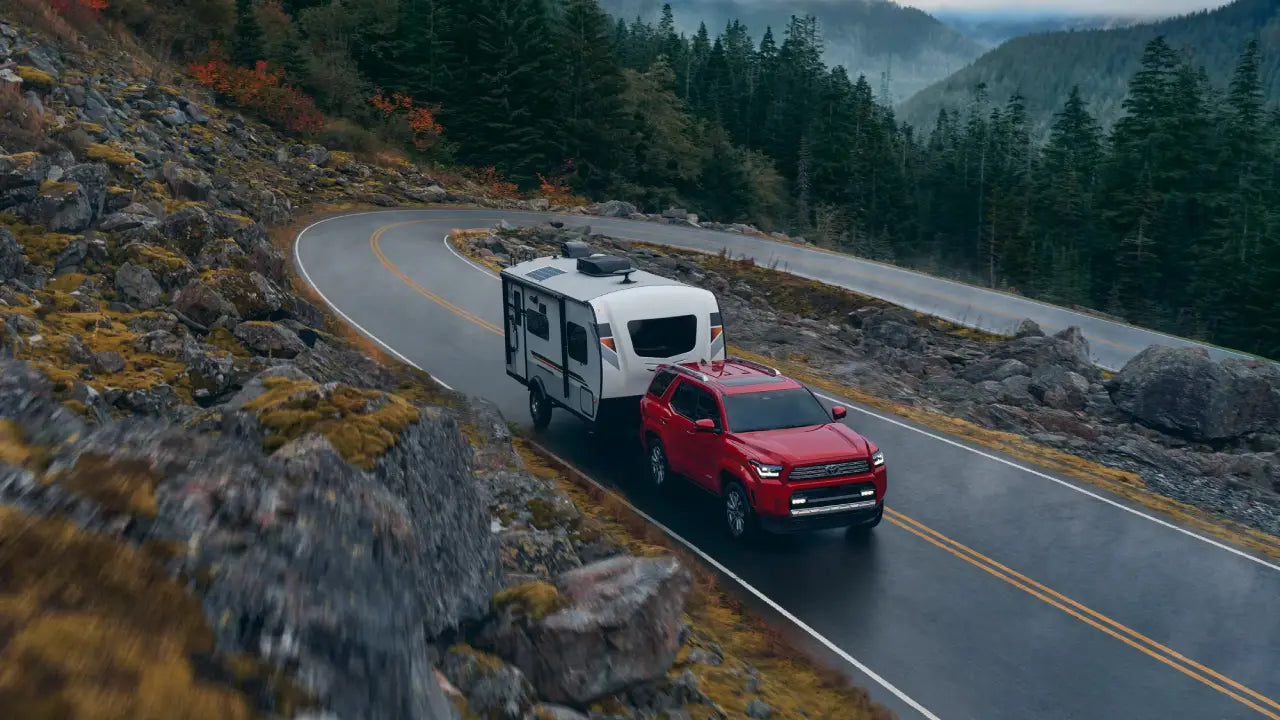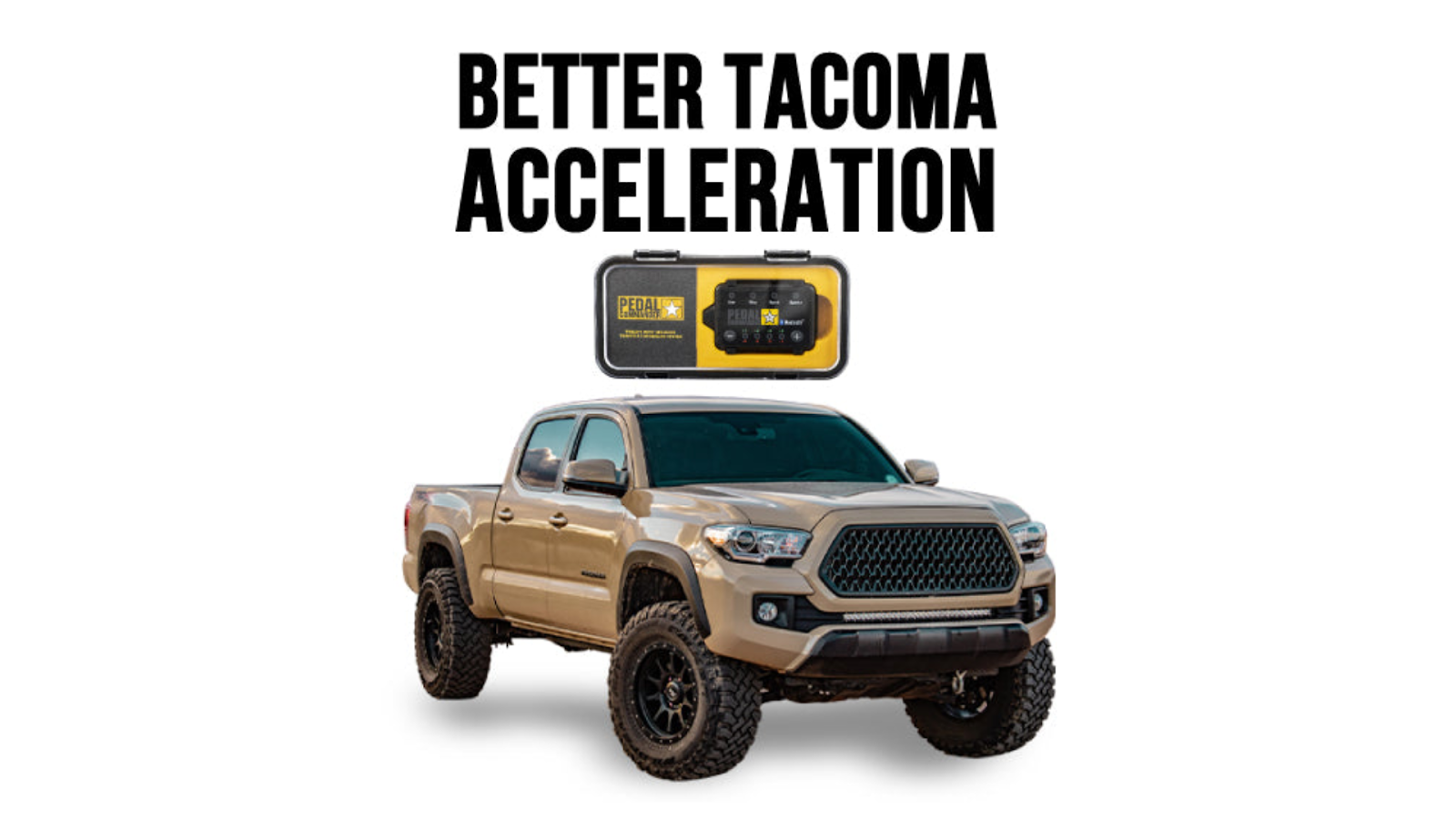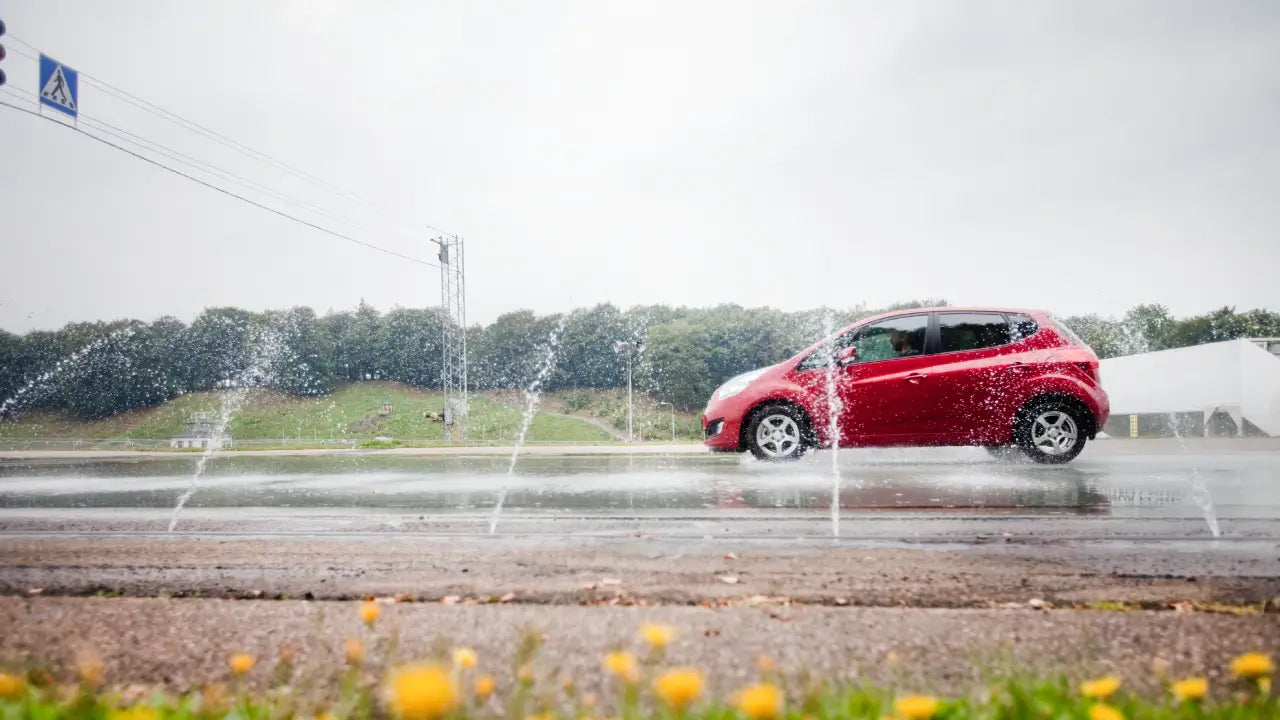Towing is one of the most difficult activities a vehicle can accomplish, requiring close attention to both the vehicle's capabilities and safe driving standards. Exceeding your vehicle's towing capacity limitations may result in mechanical stress, increased wear on critical components, and potentially unsafe driving conditions. This detailed guide includes everything about towing capacity, from key factors affecting it to practical tips and performance upgrades that make towing more reliable and efficient.
What is Towing Capacity?
Towing capacity refers to the maximum weight a vehicle can safely pull, as the manufacturer defines. This weight encompasses not only the trailer itself but also any cargo, passengers, and supplementary equipment contained within. Complying with the prescribed towing capacity guarantees that the engine, transmission, brakes, and suspension are not subjected to excessive strain, thereby preventing early deterioration and preserving overall vehicle safety.

Why Towing Capacity Matters
Understanding and respecting your vehicle’s towing capacity is critical for several reasons:
-
Safety: Overloading your vehicle can impede braking, steering, and general control, increasing your chances of an accident.
-
Mechanical Health: Going above capacity can pressure the engine, transmission, suspension, and drivetrain components, resulting in expensive repairs.
-
Performance: Operating within towing capacity limits ensures optimal fuel efficiency, better handling, and reduced tire wear.
What is the Difference between Payload and Towing Capacity?
While towing capacity refers to how much weight your vehicle can tow, payload capacity is the amount of weight your vehicle can carry inside, including passengers, goods, and trailer tongue weight. Understanding both is critical for safe towing because exceeding the limitations can jeopardize stability and safety.

How to Calculate Towing Capacity
Most vehicles have towing capacities listed in the owner’s manual or manufacturer’s specifications. To calculate the practical towing load:
-
Determine Gross Vehicle Weight Rating (GVWR): The maximum weight of your vehicle, including passengers and cargo.
-
Subtract Curb Weight: This is the weight of your vehicle without passengers or cargo.
-
Consider Trailer Weight and Tongue Weight: Ensure the total weight does not exceed the manufacturer’s towing capacity.

What Happens If You Exceed Towing Capacity
Exceeding your vehicle’s towing capacity can have serious consequences:
-
Increased Braking Distance: When a vehicle is overloaded, it takes longer to stop, increasing the chance of an accident.
-
Transmission Overheating: Towing beyond the limits produces excessive heat, lowering transmission lifespan.
-
Suspension and Axle Damage: Overloading causes components to wear or fail prematurely.
-
Loss of Vehicle Control: Steering reactivity and stability deteriorate, especially in emergency situations.

What are the Factors Affecting Towing Capacity?
Several factors determine your vehicle’s towing capacity:
-
Engine Power: Higher horsepower and torque support heavier loads.
-
Transmission Type: Automatic transmission with towing modes manages heavy loads better.
-
Suspension System: Stronger suspensions handle additional weight without compromising stability.
-
Axle Ratio: A higher axle ratio improves towing torque and capability
-
Braking System: Efficient brakes are crucial to safely manage heavier loads.
-
Cooling Systems: Proper engine and transmission cooling prevent overheating during towing.
Practical Tips for Safe, Efficient, and High-Performance Towing
Towing safely and efficiently entails more than staying within your vehicle's weight limits. It requires planning, suitable equipment, and safe driving habits. Whether you're towing a camper, a boat, or big equipment, these practical ideas will help you have a better towing experience.
-
Know Your Vehicle's Towing Limits: Before hitching a trailer, refer to your owner's manual or the manufacturer's label to determine your towing capacity, payload rating, and GCWR.
-
Distribute Weight Evenly: Uneven distribution can lead to trailer wobble and unstable handling. Ensure that approximately 60% of the trailer's load is positioned in front of the axle and 40% behind, with a tongue weight of 10-15% of the trailer's total weight.
-
Inspect Your Equipment: Before each journey, inspect the hitch, coupler, safety chains, lights, and brakes. Ensure your trailer hitch class fits your load weight and that all connections are snug and secure.
-
Monitor Tire Pressure: Ensure your tow vehicle and trailer tires are inflated to the required PSI levels. Underinflated tires can overheat and fail, but overinflated tires lose traction.
-
Drive Smoothly and Maintain Speed: Avoid rapid acceleration, braking, and harsh steering movements. Gradual, consistent motions eliminate trailer wobble and put your drivetrain components under less stress.
-
Plan for Extra Distance: Towing adds significant weight, which means longer stopping distances. Keep more space between you and the vehicle ahead, and always brake early when approaching traffic lights, turns, or steep grades.

How to Improve Towing Performance?
If you frequently tow or transport substantial cargo, investing in performance enhancements can substantially improve your towing capacity, safety, and comfort. Below are the most efficient performance modifications to optimize your vehicle’s towing capabilities.
Suspension Upgrades
The suspension system is essential for ensuring vehicle stability during hauling. Upgrading your suspension system can decrease sag, enhance handling, and improve overall comfort.
-
Air Suspension Systems: Enable the adjustment of ride height and stiffness according to cargo weight, maintaining a level vehicle posture even under substantial loads.
-
Heavy-duty Shocks and Springs: Enhance handling performance and reduce rear-end droop.
-
Sway Bars (Anti-Roll Bars): Reduce body roll and trailer sway, especially when cornering or during crosswinds.
Braking Enhancements
Safe towing relies heavily on a strong, responsive braking system. Heavy loads increase stopping distances, making upgraded brakes essential.
-
Performance Brake Pads and Rotors: Offer better heat resistance and stopping power.
-
Trailer Brake Controllers: Integrate your trailer's brakes with your vehicle's braking system for even braking and less stress on your tow vehicle.
-
Upgraded Brake Lines: Stainless steel lines improve brake pressure consistency under load.
Cooling Systems
Towing generates extra heat in the engine, transmission, and differential. Efficient cooling reduces overheating and increases the lifespan of crucial components. If you routinely pull in hot weather or mountainous areas, a dedicated cooling upgrade is essential.
-
Transmission Cooler: Provides optimal transmission temperature during heavy towing.
-
Upgraded Radiators: Offer improved heat dissipation for the engine.
-
Engine Oil Coolers: Keep engine oil within safe temperature ranges, preserving viscosity and lubrication.
Axle and Drivetrain Reinforcements
The drivetrain bears the brunt of towing stress. Reinforcing essential components improves torque delivery, traction, and longevity.
-
Heavy-Duty Axles and Bearings: Prevent wear and axle failure under load.
-
Limited-Slip or Locking Differentials: Improve power distribution and traction on all wheels.
-
Upgraded Driveshafts: Handle increased torque from towing heavy loads without flexing or vibration.
Performance Tuners
A performance tuner, ECU tuner, or engine tuner enhances your engine and transmission settings for towing. More specifically, ECU tuning is the process of reprogramming or recalibrating your vehicle's computer to change its performance characteristics. It optimizes air/fuel ratios, ignition timing, and shift points to increase torque and fuel efficiency.
Throttle Response Controllers
Unlike the above-mentioned performance upgrades, throttle response controllers are a faster and more practical option to improve your vehicle's towing performance. These devices improve the way your accelerator pedal communicates with the engine's throttle system, decreasing the latency that many modern vehicles encounter due to electronic throttle control. Continue reading to learn about the most advanced and dependable throttle response controller on the market!
How to Increase Your Vehicle’s Towing Performance with Pedal Commander®?
Towing heavy loads demands more than raw engine power; it requires responsive acceleration and precise control. Many modern vehicles, however, suffer from throttle lag, which makes it difficult to accelerate smoothly when towing trailers, boats, or campers. This is where the Pedal Commander® comes in, providing a simple yet extremely effective solution for improving your vehicle's throttle response and overall hauling performance.

Pedal Commander® helps you adjust the throttle response during towing heavy loads thanks to its four distinct adjustable modes (Eco, City, Sport, and Sport+). So, you can minimize your acceleration to avoid the forces generated by the towing process. The Eco mode offers slow and smooth acceleration, reducing the risk of sudden, jerky movements and maintaining control, especially during long-distance towing. The City mode offers appropriate acceleration for city traffic while towing. The Sport and Sport+ modes provide more responsive acceleration and time efficiency when towing in certain terrains.
Furthermore, Pedal Commander® is designed to smoothly interact with the vehicle's existing electrical systems. It follows the manufacturer's safety guidelines, ensuring the engine, transmission, and other critical components are not damaged. This design maintains vehicle reliability while improving throttle responsiveness for towing performance. So, if you want to improve your towing experience, click here to choose a Pedal Commander® that is specifically tailored for your vehicle model and year.













